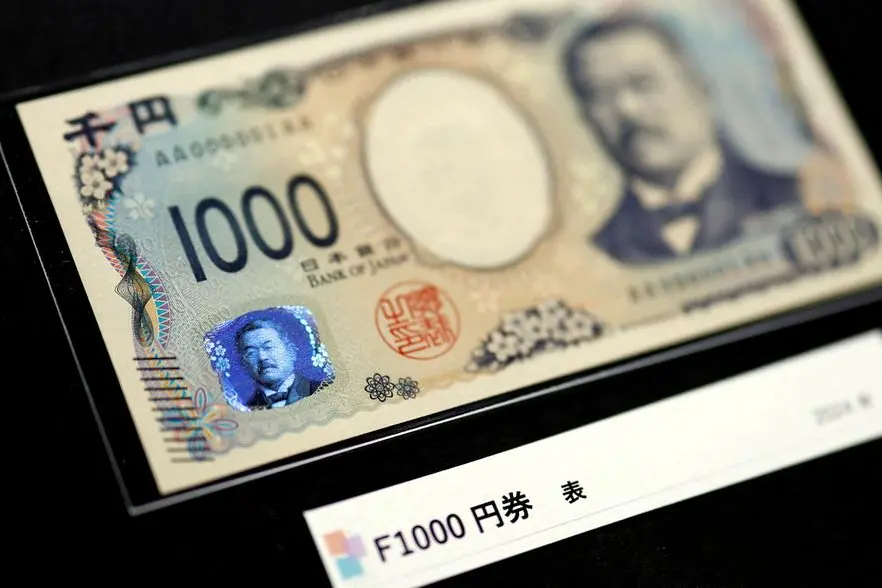PHOTO
TOKYO - The safe-haven yen hit its highest since the start of the year against the dollar on Wednesday as U.S. presidential contenders Kamala Harris and Donald Trump kicked off their first debate, with candidates neck-and-neck ahead of the November poll.
Traders were also waiting nervously for a key inflation report that could provide clues on how aggressively U.S. rates would be cut next week.
Also giving the yen a boost were comments from Bank of Japan board member Junko Nakagawa, who reiterated in a speech on Wednesday that the central bank would continue to raise interest rates if the economy and inflation move in line with its forecasts.
The dollar dropped as much as 0.68% to 141.50 yen, a level not seen since Jan. 2, before last trading at 141.83 yen as of 0149 GMT. The dollar-yen pair tends to track long-term Treasury yields, which extended an overnight slump in Asian time to reach 3.635% for the first time since June of last year.
Shoki Omori, chief Japan desk strategist at Mizuho Securities, said Harris appeared to gain confidence in the debate and clearly set out her economic policies.
"That gave some relief to the market, (weakening the dollar), although it's hard to say at this point what the direction for the dollar will be" in the event of a Harris or Trump presidency," Omori said.
Meanwhile, Nakagawa "said real rates are still low, so there's more room to tighten policy," which pushed up the yen, Omori added.
The euro gained 0.16% to $1.1038, recovering from its overnight slide to $1.10155 for the first time since Aug. 19.
Sterling ticked up to $1.3089, following its drop to $1.3049 in the prior session, the weakest since Aug. 21.
The dollar index - which measures the currency against those three rivals and three other major peers - slipped 0.15% to 101.49 after rising to a one-week top at 101.77 on Tuesday.
In a very heated debate, Democratic Vice President Harris attacked Trump's intention to impose high tariffs on foreign goods - a proposal she has likened to a sales tax on the middle class - while touting her plan to offer tax benefits to families and small businesses.
Republican nominee Trump criticised Harris for persistent inflation during President Joe Biden's term.
The stakes are particularly high considering the debate between Trump and President Biden ultimately spurred the incumbent to drop out of the race.
Investors broadly see the dollar strengthening in the event of a Trump victory, as tariffs might prop up the currency and higher fiscal spending could boost interest rates.
Meanwhile, the Federal Reserve is widely expected to ease policy on Sept. 18 for the first time in more than four years, but traders are split on the size of the cut. Fed funds futures indicate a 69% chance of a standard 25-basis point cut, and 31% odds of a super-sized 50 bps, according to LSEG calculations.
U.S. headline CPI is expected to have risen 2.6% year-on-year in August, according to a Reuters poll, down from 2.9% in July.
"Markets want to see evidence that inflation is behaving in a way that allows the Fed the wriggle room to cut 50 basis points if it needs to," said Kyle Rodda, senior markets analyst at Capital.com.
At the same time, "a significant downside surprise would not be welcomed by the market because it could be interpreted as a sign of an unfolding demand shock," he added.
(Reporting by Kevin Buckland Editing by Shri Navaratnam and Sam Holmes)





















